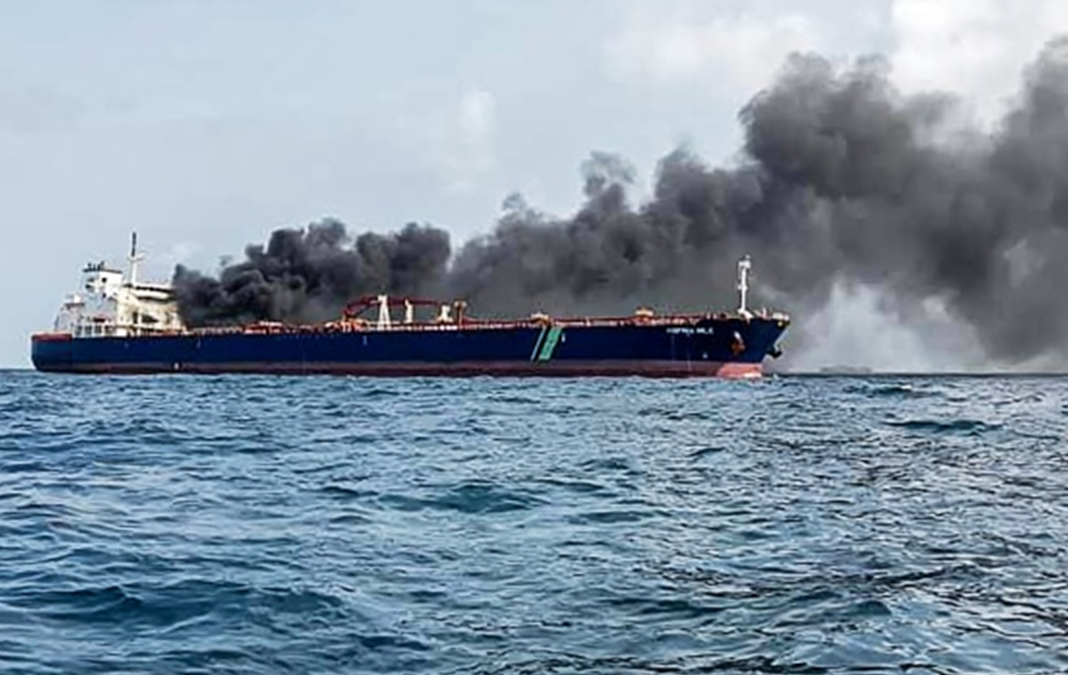Image: Singapore Maritime Law Enforcement Agency
What’s New: Ships collide in the dark when one is spoofing its GPS position. An example of the bad things that can happen during spoofing.
Why It’s Important: Spoofing makes all operations less safe. And it happens so often, the reduction in safety is bound to result in bad things happening. If for no other reason than the large numbers involved. Sooner or later, a bad thing will happen, like this, or an even worse thing will happen, like people dying.
What Else to Know:
- Spoofing can support illicit trade. In this case, import of sanctioned oil from Iran to China and trying to avoid sanctions.
- The ship traffic safety system AIS ensures vessels near each other have information about their location, course, speed, destination, etc. AIS was specifically designed and implemented world wide to avoid collisions.
- The ship that was engaging in spoofing continued to do so after the collision as it was being towed by two tugs and trying to escape authorities.
- Spoofing can and does support many other kinds of illicit operations.

,
SINGAPORE — A crude oil tanker traveling from Iran made a delivery to the Chinese port city of Ningbo a few months ago before heading back toward the Middle East. The Ceres I had made this round trip several times in the past year, according to ship-tracking data. But it didn’t complete this voyage.
The Ceres I and another tanker collided off Malaysia in the South China Sea on July 19, causing significant damage to both vessels. Malaysian authorities said the Ceres I had experienced “technical difficulties.” But shipping and energy analysts say the pattern of the vessel’s movements before the collision suggests another explanation: The Ceres I had been broadcasting a fake location on ship locator channels.
Among groups that track ship movements, the Ceres I was widely known to be part of a “dark” fleet of tankers operating outside international regulations to feed China’s appetite for sanctioned crude oil. China, the world’s biggest importer of oil, is one of the few remaining customers of crude from countries such as Iran, Venezuela and Russia, which are subject to heavy sanctions by the United States.


